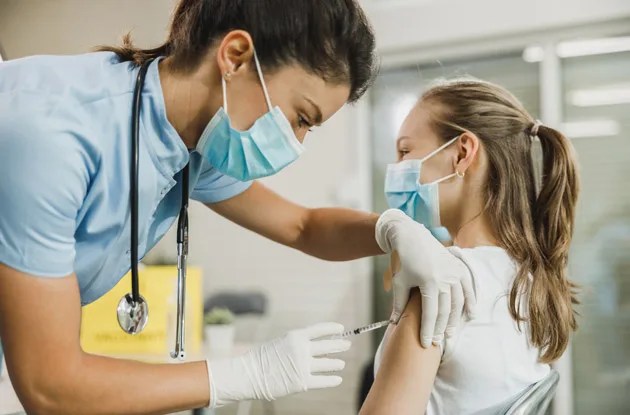Pertussis, or whooping cough, can be fatal for newborn infants who have not yet received the whooping cough vaccination. The best way to protect your newborn from whooping cough is to make sure you and your friends and family are up to date on the “Tdap” vaccine—the pertussis vaccine for teens and adults.
 Cases of pertussis, also known as whooping cough, are on the rise in the U.S., recently reaching the highest level in 50 years. The disease can be serious or even fatal to newborns who have not yet received vaccinations.
Cases of pertussis, also known as whooping cough, are on the rise in the U.S., recently reaching the highest level in 50 years. The disease can be serious or even fatal to newborns who have not yet received vaccinations.
Effective vaccines against pertussis have been available for many decades, but that vaccine protection can wear off over time. A new University of Michigan poll shows that 61 percent of adults say they don’t know when they were last vaccinated against pertussis, which could mean they might be unknowingly exposing vulnerable babies to the disease.
Only 20 percent of adults reported that they received the pertussis vaccine less than 10 years ago (the recommended time frame) and 19 percent said they were vaccinated more than 10 years ago.
“Pertussis is a very preventable disease,” says Matthew M. Davis, M.D., M.A.P.P., director of the C.S. Mott Children’s Hospital National Poll on Children’s Health.
“But many adults may think their childhood vaccinations still are protecting them against pertussis. Findings from this poll show that few adults have received a booster shot within the recommended 10-year time frame and in fact, two-thirds told us they were not aware of their vaccination status.”
Pertussis easily spreads within households, day care facilities, schools, and neighborhoods and is most often serious in infants and young children. In fact, the majority of deaths from pertussis occur in children younger than 3 months old.
The poll, however, found broad support for parents to insist their newborns aren’t exposed to those who might not be current on their pertussis vaccine.
The majority of adults polled—72 percent—strongly agree or agree that parents have the right to insist that visitors receive the pertussis vaccine before visiting a newborn baby in the hospital. Nearly two-thirds—61 percent—of adults strongly agree or agree that parents should make sure all adults receive the pertussis vaccine before visiting a newborn baby at home.
Pertussis vaccines are recommended for teens and adults (known as the “Tdap” vaccine), including pregnant women. Boosting immunity against pertussis among teens and adults is especially important for protecting newborns against the disease. Most infants who fall sick with pertussis got the illness from an older child or adult with pertussis.
“Welcoming a baby to the family is a wonderful time, and no one would want to put an infant at risk,” Davis says. “So the results of this poll are encouraging because they indicate some awareness that visitors need to be protected against this disease.”
“Teens and adults who have received the Tdap vaccine are less likely to get whooping cough themselves,” Davis says. “And therefore less likely to spread whooping cough to other people—including infants who have not yet been protected by the recommended pertussis vaccinations.”
The C.S. Mott Children’s Hospital National Poll on Children’s Health—based at the Child Health Evaluation and Research Unit at the University of Michigan and funded by the Department of Pediatrics and Communicable Diseases and the University of Michigan Health System—is designed to measure major health care issues and trends for U.S. children.
Also see:
Why Getting Vaccines Is Important for Your Baby’s Health





















